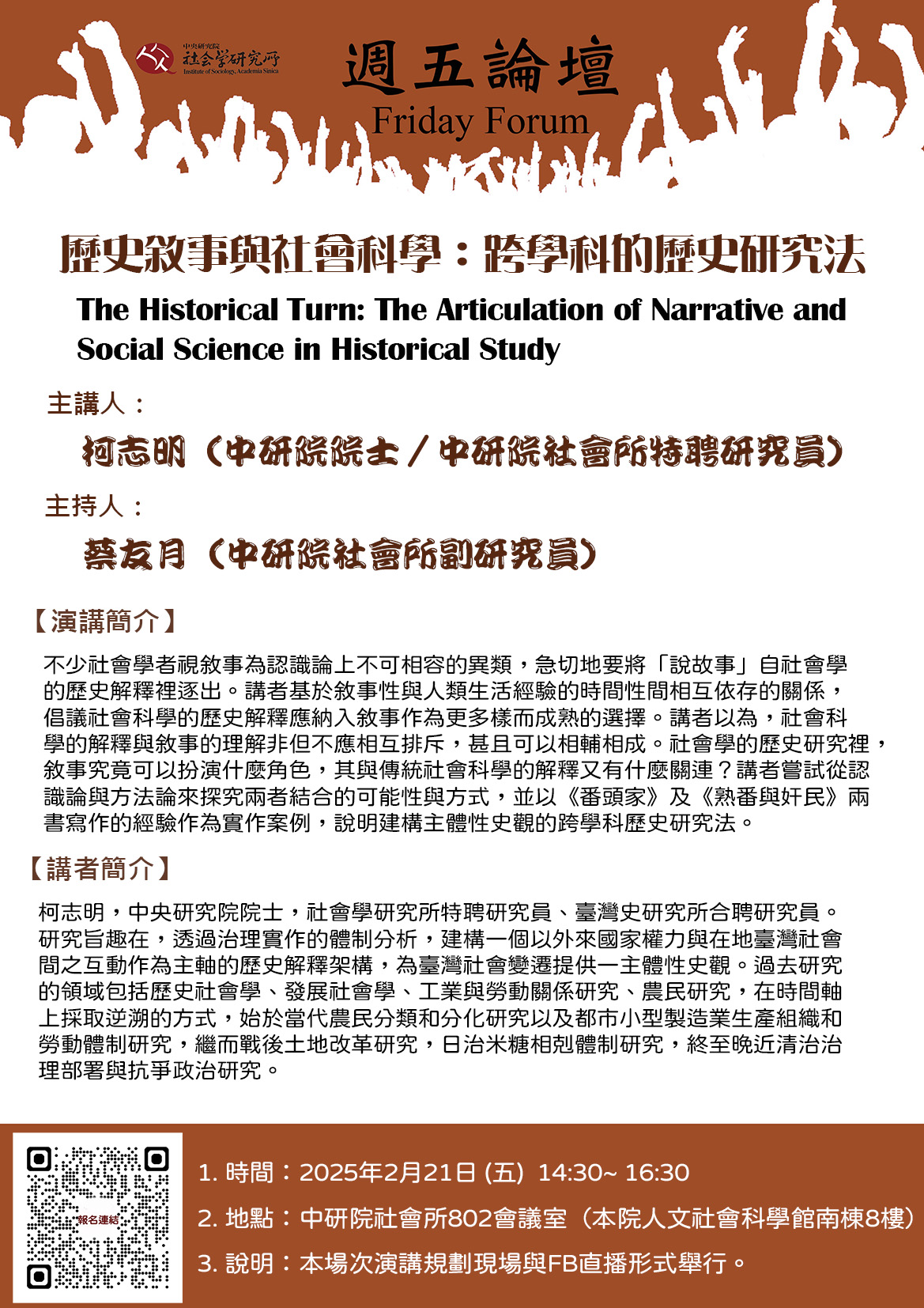- Lectures
- Institute of Sociology
- Location
Room 802, Institute of Sociology (8F, South Wing of Humanities and Social Sciences Building, Academia Sinica)
- Speaker Name
Chih-Ming Ka (Distinguished Research Fellow, Institute of Sociology, Academia Sinica)
- State
Definitive
- Url
Brief
Narrative is regarded as the epistemological other by many sociologists who eager to drive story-telling out of their historical explanation. The speaker, adhering to the reciprocity between narrativity and temporality, however advocates the incorporation of narrative mode into the historical explanation of sociology as a sign of methodological diversity as well as maturity. This talk illustrates an articulation between narrative understanding and social science explanation through the writing experience of Aborigine Landlord: Ethnic Politics and Aborigine Land Rights in Qing Taiwan and Cultivated Aborigines and Unruled Hans: Governance Deployment and Contentious Politics in Qing Taiwan.
Speaker
My academic vocation is contributed to an exploration of the existence of Taiwanese society and its meaning. Since the introduction of the state power into Taiwan circa 1624, the formation and transformation of Taiwan’s multiple-ethnicities society, particularly the relationship of ethnic populations and social relations of production, have been deeply affected by the characteristics of the state power and its governance deployment. My research agenda hence is pivoted on constructing a historical explanation framework through analyzing the regime of practice, deciphering the interaction of the exogenous state powers and the indigenous Taiwanese society. My research has been conducted in a retrospective sequence, starting from post-war land reform, classification and differentiation of peasantry, and production organization of urban small-scale industry, to the rice/sugar production regime in colonial Taiwan, and finally to the governance deployment and contentious politics in Qing Taiwan.









 Home
Home

